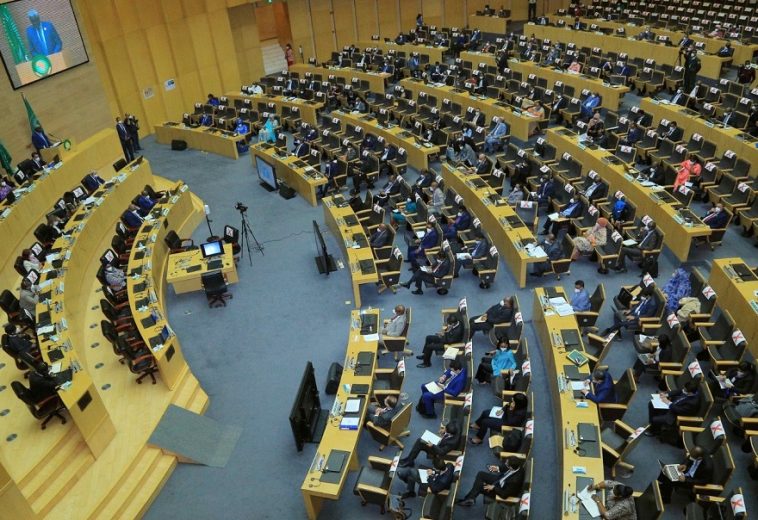The 2024 BRICS Summit, set in Kazan, Russia, marks a significant milestone in the coalition’s development. This is the first summit since BRICS expanded its membership to include Egypt and Ethiopia, alongside Saudi Arabia, the United Arab Emirates, and Iran, doubling its membership from five to ten nations.
New Members and Their Impact
The addition of Egypt and Ethiopia, alongside Saudi Arabia, the UAE, and Iran, positions BRICS to strengthen its influence, particularly in Africa. Egypt, with its strategic position in North Africa, and Ethiopia, one of the fastest-growing economies on the continent, bring distinct perspectives and opportunities to the coalition.
The inclusion of these countries demonstrates BRICS’ commitment to amplifying the voices of the Global South and addressing historical imbalances in international governance. Experts expect the summit to focus on how best to integrate the new members into the BRICS framework. Wang Youming, a researcher at the China Institute of International Studies, has emphasised the importance of efficient incorporation and the possible refinement of expansion mechanisms for the future.
Comparing BRICS and the G7
Economic Strength
BRICS nations have seen their share of global GDP rise from 10.1% in 2002 to 37.4% in 2023. In contrast, the G7’s share has dropped from 64.4% in 2002 to an estimated 29.3% in 2023.
Looking ahead, BRICS is projected to maintain around 29.2% of global GDP in market exchange terms and 38.3% when adjusted for Purchasing Power Parity (PPP) by 2029. The G7, on the other hand, is forecast to account for 42.4% of GDP in market terms and 27.5% in PPP terms.
Debt and Fiscal Health
A report by Ernst & Young highlights that BRICS countries, with their lower debt-to-GDP ratios, are better positioned to navigate economic challenges compared to the G7 nations. This fiscal health allows BRICS nations to respond more effectively to potential economic crises.
Rising Global Influence
BRICS now represents over 40% of the world’s population and, as of 2021, accounted for around 25% of global GDP, contributing to more than half of global economic growth (World Bank).
Despite this, BRICS members hold less than 15% of the voting rights in key global financial institutions such as the International Monetary Fund (IMF) and the World Bank, underscoring the need for reform in global financial governance.
Boris Guseletov of the Russian Academy of Sciences suggests the summit will focus on enhancing strategic partnerships in trade, innovation, and technology to spur economic growth. A potential alternative payment system will likely be a key topic as BRICS seeks to reduce its dependence on the US dollar, which has exposed vulnerabilities in international transactions.
What Does This Mean for Africa?
For African nations, the inclusion of Egypt and Ethiopia offers a wealth of opportunities. Their participation in BRICS generates optimism about increased investment, trade, and technology transfer across the continent. Analysts suggest that BRICS membership could empower African countries to negotiate better deals and access funding for infrastructure projects, particularly through the New Development Bank (NDB), which was established in 2014 to support sustainable development.
Infrastructure investment is expected to be a focal point at the summit, as many African nations face challenges in this area. Strengthened partnerships in infrastructure could lead to greater regional integration and development across the continent.
A Challenge to Western Influence
The expansion of BRICS is seen as a challenge to Western dominance in global affairs. As the coalition grows in economic power, it could shift the balance in international relations. The integration of Egypt and Ethiopia extends BRICS’ reach into Africa, which some view as a direct challenge to traditional Western influence, particularly as these nations explore alternatives to established Western financial systems.
A more unified BRICS, with stronger African representation, could alter global trade dynamics and promote a multipolar world order. This would better represent the interests of the Global South, giving them a stronger voice on the world stage.
Looking Ahead
As the 16th BRICS Summit commences, the agenda is expected to cover a range of topics, including economic and political reforms in global governance and the unique opportunities arising from the coalition’s expansion.
With Egypt and Ethiopia at the table, BRICS is poised to forge new paths in international cooperation, fostering solidarity among its members and amplifying the voices of the Global South.
In an increasingly interconnected and shifting global landscape, the summit represents a pivotal moment for BRICS and its new members. Together, they hold the potential to reshape the global order, reflecting the aspirations of nations seeking a fairer, more equitable world.




